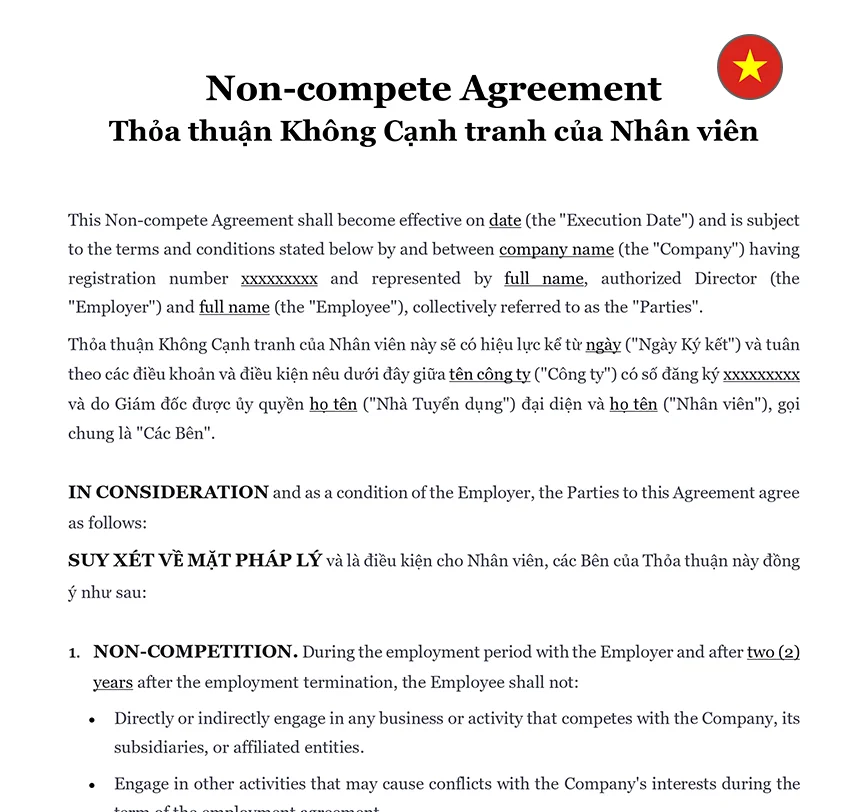Understanding Non-Competition Clauses
Non-Competition Clauses are legal provisions that restrict employees from engaging in activities that directly compete with their employer’s business. These clauses are typically included in employment contracts to prevent employees from using proprietary knowledge or relationships gained during their tenure to benefit a competitor. By defining the limitations on the employee’s ability to work with competitors or start a competing business, these clauses aim to protect the employer’s investments in employee training, trade secrets, and customer relationships. Draft robust agreements with our Employee Non-Compete Agreement template to ensure comprehensive protection for your business.
The Importance of an Employee Non-Compete Agreement
An Employee Non-Compete Agreement is a specific type of non-competition clause designed to protect your business’s sensitive information and maintain a competitive edge. Key aspects include:
Protection of Sensitive Information: Ensures that trade secrets, client relationships, and business strategies remain confidential and secure.
Geographic and Time Restrictions: Stipulates that the employee will not engage in similar business activities within a specified geographic area and timeframe after leaving your company.
Competitive Edge Maintenance: Helps maintain your competitive edge by preventing former employees from using proprietary knowledge to benefit competitors.
Clear Understanding of Breach: Provides a clear understanding between the employer and employee about what constitutes a breach of contract, thereby reducing the likelihood of legal disputes.
Legal and Business Assurance: Offers legal assurance and clarity, protecting the business from potential competitive harm due to employee turnover.
By incorporating an Employee Non-Compete Agreement, you can better safeguard your business from potential threats and ensure long-term stability and success.
Key Elements of Non-Competition Clauses
Non-Competition Clauses should be carefully crafted to include the following key elements:
1. Duration
Specifies the length of time the employee is restricted from competing. The duration should be reasonable and directly related to the time needed to protect the employer’s interests.
2. Geographic Scope
Defines the area within which the employee cannot engage in competing activities. This scope should be limited to regions where the employer has legitimate business interests.
3. Scope of Activities
Details the types of activities or business sectors the employee is restricted from joining. This scope should be narrowly tailored to prevent unfair competition without unduly restricting the employee’s ability to find new employment.
- Remarks:
Use our Employee Confidentiality Agreement for safeguarding business information and ensure clear policies with our Employee Handbook template for non-compete clauses.
Benefits of Non-Competition Clauses
Implementing Non-Competition Clauses offers several benefits to your business:
| ➤ Protection of Trade Secrets: Ensures confidential business information remains secure, preventing former employees from using sensitive knowledge to benefit competitors. |
| ➤ Retention of Clients: Prevents former employees from soliciting your clients, thereby safeguarding customer relationships and ensuring business continuity. |
| ➤ Maintenance of Competitive Edge: Keeps key strategies and business practices from reaching competitors, helping to maintain a distinct advantage in the marketplace. |
| ➤ Stability in Workforce: Discourages employees from leaving to join competitors, fostering a stable work environment and reducing turnover costs. |











